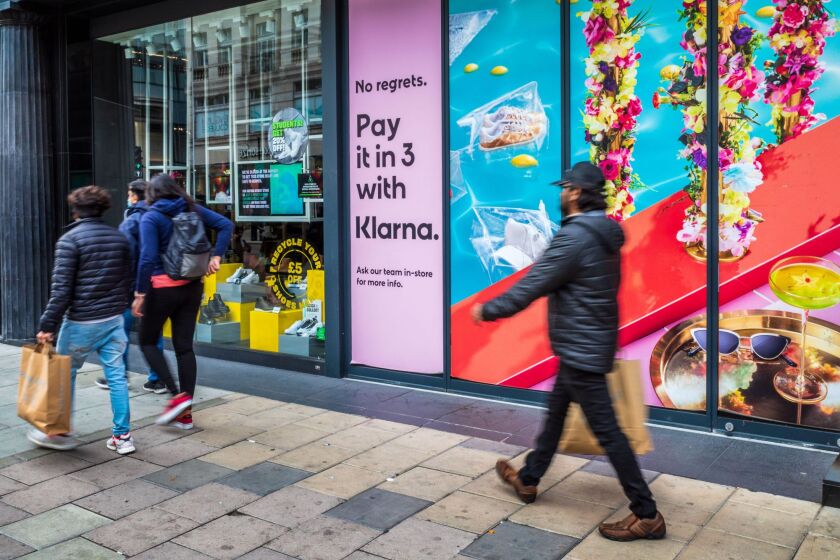The Buy Now, Pay Later (BNPL) sector is likely to suffer a quick and heavy drop as inflation and interest rates rise and consumer spending drops.
As inflation chips away at the spending power of the average consumer, BNPL will be forced to adapt to the new spending environment, say panellists at ABS East in Miami this week.
One investor told GlobalCapital Securitization that the sector is going to have to adapt its entire model if it is to weather the storm.
“There are three options: charge interest, charge fees, or focus exclusively on customer acquisition,” he said. “We are going to see the entire market, Klarna, Uplift and everyone else switch to one of these models in the very short term. Market conditions are going to hurt them.”
Panellists at the Buy Now, Pay Later: Credit Card Receivables session on Monday shared a similar outlook on the near-term success of the sector compared to other similar asset classes.
“We finance a number of the very large players,“ said Jason Brown, partner at Victory Park Capital. “Six months ago one issuer changed their model dramatically and reduced their losses by 50% in preparation for what they think is going to be pretty hard cycle coming up.
“Buy now, pay later as a segment is going to be under a lot of stress with rising interest rates, because they're going to have to find ways to pass the merchant cost on and increase their margins.”
Every BNPL issue is going to see an increase in losses, is going to see margins squeezed, will struggle to find places to pass this loss on because merchants are unlikely to accept price increases for the underlying product.
Business model shift required
BNPL businesses will be forced to shift their product if the business model is not sustainable, and they start to see increasing losses. It is likely that the existing three or four-month model will morph into a 12-month longer term installment model, said Brown.
“Having said that, millennials and Gen-X love the product so they're still going to want to use that product even with longer term installments,“ he added. “But within the next six months we are going to see this shift happen.
“It will be interesting to see how it competes against credit cards, and how much market share they are actually able to take while at the same time having increased losses.”
BNPL’s popularity amongst younger generations may also contribute to its ultimate downfall. The type of consumer that already uses credit cards to finance their lives is unlikely to stop the habit, even with longer term BNPL available, and as conditions change younger generations too will be forced — or encouraged — into making that switch.
“Gen-Zs and Gen-Ys like BNPL because they get used to being able to focus on a short period of time, their concentration has shrunk to about two and a half minutes of TikTok so if they get six or three months to pay, that product makes a lot of sense,” said Anatoly Burman, founder, CIO and CTO at Varda Re. ”I agree that, as inflation rises, and as they mismanage their finances, they'll realize very quickly that they actually can't afford to do that.
“As they are graduating you will probably see people throwing credit cards at them as well, so you will see the shift of those people going into the credit card space. The BNPL market may naturally phase out.”
A further concern for panellists is that BNPL schemes are not reported to consumers FICO scores. As conditions worsen and more consumers start to be unable to make repayments, this will become problematic because credit agencies are not really seeing the true delinquencies and foreclosures going through those products. This is another area where credit cards have the upper hand.
While panellists were far from bullish for the asset class, and the savings that the average consumer made over the last few years during the pandemic are being eroded by inflation, there will still be some demand for BNPL in the coming years.
Dale Hoops, chief risk officer at Fidem Financial, said that the one benefit that BNPL has is that a consumer knows what is likely to happen in the next two or three months.
“It’s not like a credit card where maybe 12-months later you can have a big life event and suddenly can’t pay,” she said. “You get a little bit of that benefit, but that will mean that some people will not be able to pay but still take the BNPL options to try to make up for shortfalls, which is a real problem. I would agree that that sector is really going to struggle.”

